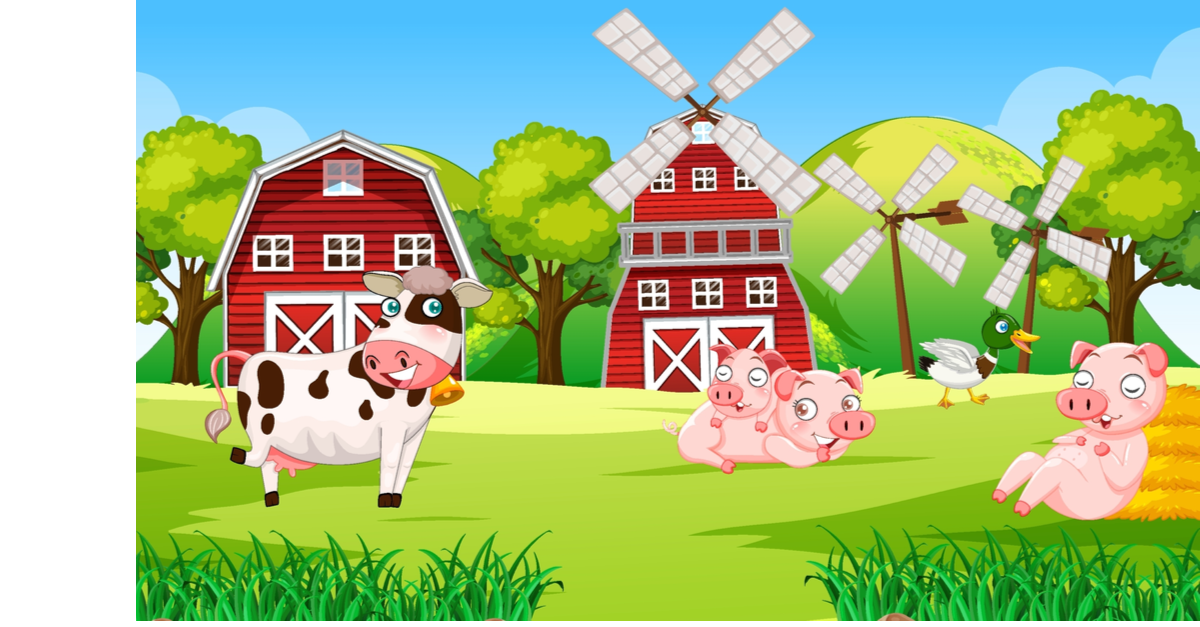
Ultimately, the animals’ rebellion is forgotten. One tyrant has replaced the former tyrant. The commandments are subsumed into one, Orwell’s ultimate irony! The twentieth-century philosopher George Santayana has famously remarked that “Those who cannot remember the past are condemned to repeat it.” After we have discussed the novel, assign a short paragraph that applies this insight to the novel. Here is one 9th grade student’s response:
These words directly relate to Animal Farm. After Napoleon has been reigning for many years, the animals cannot remember what life was like when Mr. Jones was their master. The gullible farm animals have been so brainwashed that they are willing to believe whatever they are told; they forget their past—Old Major’s teachings, the original wording of the commandments of animalism, the Battle of the Cowshed, for instance—and are thus unaware that their current leaders are as tyrannical as the farmer who has been replaced. The pigs achieve this takeover via Squealer’s sly propaganda and cunning manipulation of language. Orwell’s satire brilliantly demonstrates the truth of Santayana’s words.
Orwell’s attack on the manipulation of language is another important but complex issue. Orwell suggests that tyrants use euphemistic language to promote their agenda. In other words, they soften the language they use with the workers in a community in order to mask the reality that powerful men control those workers’ lives, and they manipulate the masses into thinking all is well. I ask students for examples of euphemisms commonly used today. For example, instead of mentioning that someone has died, we say “he has passed on”; a lie is referred to as “a manipulation of the truth”; poor people ase “economically disadvantaged”; a slum is “substandard housing”; a garbage man is “a santiation engineer.” During war, civilians killed or wounded are referred to as “collateral damage”; prisoners are “detainees.”
These euphemistic definitions are wordy, indirect, and inoffensive. Politicians and ordinary citizens use euphemisms, sometimes quite harmlessly; as a technique for tyrants, however, euphemisms become dangerous. And that is Orwell’s point. When young people write essays, they should be trained to adopt direct, vigorous prose and to avoid euphemisms or any other form of circumlocution.
Younger students won’t appreciate the full intent of Orwell’s essay “Politics and the English Language,” but older students will benefit from reading this well-known piece if they study 1984. Younger students can certainly benefit from studying Orwell’s list of rules for good writing included in his essay. Young people should understand the vital importance of their education, without which they too could become, as it were, like Boxer—unable to realize he is being manipulated by animals much cleverer than he. They should understand the key ideas that permeate Orwell’s book. For example, we must be trained to think lucidly in order to express ourselves forcefully and to recognize the manipulation of truth in all its ugly forms. Furthermore, if citizens of any country are uneducated and unable to reflect wisely on current events, that country’s rulers could subjugate the people and subject them to tyranny. Orwell’s wisdom is desperately needed in this divided world in which many young people in our classrooms will become our future thinkers and leaders.
Note to teachers:
Review questions and tests on this novel and other literature I discuss are included in my “How to Teach Lit” books available on my website.
About the Author
Written by Elizabeth McCallum Marlow
I taught all aspects of the English curriculum at various colleges and private schools for 35 years. I now want to give back what I learned in the classroom about conveying to students a love for literature and a desire to write cogently. I would love to receive comments and questions that can be addressed to me at www.eamarlow0103@gmail.com.

